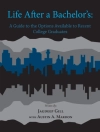Examines the need to recenter the category of sex–theorizing sex itself as nonbinary–in contemporary studies of gender and sexuality
Gender has largely replaced sex as a category in critical theory, in progressive cultural circles, and in everyday bureaucratic language. Much of this development has been salutary. Gender has become a crucial site for theorizing trans identifications and embodiments. Yet, without a concomitant theory of sex, gender’s contemporary uses also intersect with late neoliberalism’s emphasis on micro-identities, flexibility, avatar culture, and human capital. Contemporary culture has also grown more ambivalent about sexual desire and its expression. Sex is seen as both ubiquitous and ubiquitously a problem.
In Defense of Sex theorizes sex as both a nonbinary form of embodiment (one that can complement recent trans conceptions of gender as multiple and nonbinary) and a crucial form of social desire. Drawing on intersex and trans theory as well as Marxist theory, feminist new materialism, psychoanalysis, and accounts of the flesh in Black studies, author Christopher Breu argues for a materialist understanding of embodiment and the workings of desire as they structure contemporary culture. Moving from critique to theorizing embodiment, desire, and forms of bioaccumulation, In Defense of Sex concludes by proposing the unabashedly utopian project of building a sexual and embodied commons.
In Defense of Sex: Nonbinary Embodiment and Desire is available from Knowledge Unlatched on an open-access basis.
表中的内容
Preface: “This ain’t by design, girl” | xi
Introduction : Sex for the Twenty-First Century | 1
1 The Ascent of Gender and Decline of Sex | 39
2 Sex as Extimacy | 67
3 Bioaccumulation and the Dialectics of Embodiment | 101
4 The Sexual and Bodily Commons | 134
Epilogue : Following in the Steps of the Hermaphrodite | 173
Acknowledgments | 177
Notes | 181
Index | 205
关于作者
Christopher Breu (he/they) is Professor of English at Illinois State University. He is the author of Insistence of the Material: Literature in the Age of Biopolitics and Hard-Boiled Masculinities. He is also co-editor (with Elizabeth A. Hatmaker) of Noir Affect (Fordham).












